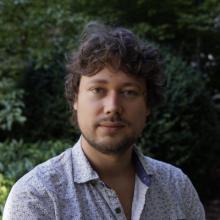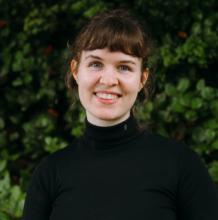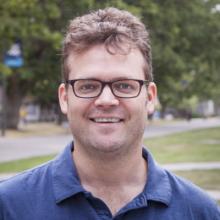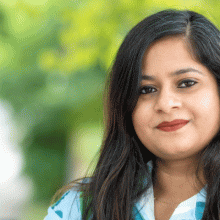Katie Warfield works with young people to study what they experience when they share images of themselves online (e.g. via selfies and sexting) in order to develop empirically-informed learning resources for elementary and high school educators, and self-educated young people.
Research Description
My research is looking at novel ways of studying what young people experience when they take and post images of their bodies online specifically through social media sites. Increasingly young people post images of themselves and others as a form of communications and sharing. And although we've seen a rise of laws regarding the regulation of extreme cases of sharing images online, like sexting, little has been done to learn about what young people are feeling and experiencing as they do so. My research aims to develop empirically-informed and tested qualitative education resources for elementary and high school classrooms to fill this gap in research and resources.
What does being a Public Scholar mean to you?
Being a public scholar means adopting a responsibility to the impact of your research. It means connecting your research to real-world applications beyond peer-reviewed journals and book chapters. It means assuring that your research has an impact on community and society at large.
In what ways do you think the PhD experience can be re-imagined with the Public Scholars Initiative?
I love that the Public Scholar's initiative provides the networking of graduate students with other graduate students and also with potential community partners. Doing graduate work can sometimes be solitary and so the PSI assures that grad students are constantly connecting with and interacting with a group of other young people from various disciplines. The PSI also assures that we connect with the people our work could potentially affect--the local community--which encourages networking but also, importantly, accountability in our work and research.
How do you envision connecting your PhD work with broader career possibilities?
My career goals are to grow the Visual Media Workshop into an international hub for the study of visual social media and internet culture. My PhD work will provide the first of a series of empirically-informed research initiatives to study young peoples emotions and experiences interacting with social media phenomena. My larger goal is that post-PhD, the Visual Media Workshops undertakes a continuation of these sorts of projects in order to produce learning resources for new internet phenomena as they arise.
How does your research engage with the larger community and social partners?
My research will be conducted over a school semester, in two parts, and in partner with a local high school in Surrey. I will work with a group of high school students to first, examine their embodied experiences of sharing images of their bodies on social media. I'll then develop and test out a series of learning resources with them, informed by the initial reflective data I gather. I'll make the learning resources available for free on the Visual Media Workshop website and contact BC high school teachers to adopt the learning resources directly into their classrooms.
Why did you decide to pursue a graduate degree?
I am a faculty member in the department of Journalism and Communication studies at Kwantlen Polytechnic University. Last year I started up a research and learning resources centre called the Visual Media Workshop studying, specicially, the phenomenon of selfies. I wanted to pursue my PhD to be competitive in federal and international grants to grow the VMW into a hub for the study of visual social media phenomena.
Why did you choose to come to British Columbia and study at UBC?
UBC has an internationally-renowned department of education and I hoped to have the opportunity to network with the scholars there.
The PSI also assures that we connect with the people our work could potentially affect--the local community--which encourages networking but also, importantly, accountability in our work and research".




